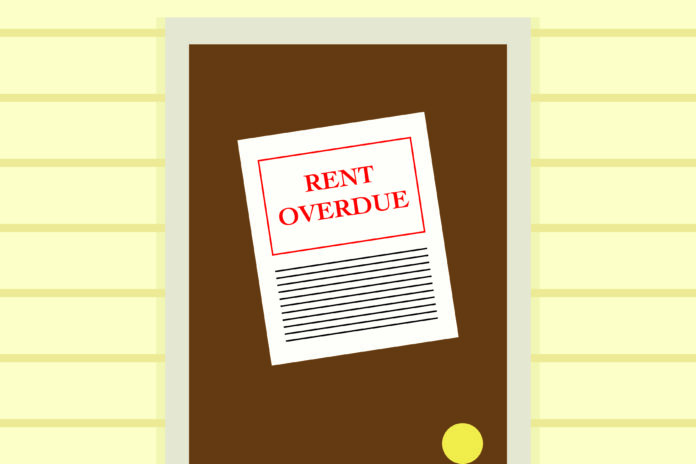May rent payment looks doubtful, Yolo County District Attorney’s Office, city of Davis police department looking into legalities
WeHousing, a booking company that primarily focuses on helping international students find university housing, has neglected to pay April rent for about 100 UC Davis students.
The company uses master lease agreements, signing a large quantity of leases with different apartment complexes and subleasing these rented apartments to their customers. Apartment owners lease entire units out to WeHousing for a full year, and WeHousing furnishes these apartments and rents them out by room or by bed.
WeHousing’s business strategy was attractive to international students, who make up a large portion of the individuals affected by the company’s failure to pay rent. Wesley Young, the director of UC Davis’s Services for International Students and Scholars, explained that WeHousing’s marketing was primarily geared toward Chinese students and how its strategy made the housing search easier for international students.
“Most students, you’ve got to find roommates, then you go to the apartment complex and you rent the apartment,” Young said. “[WeHousing] finds you a bed, they find you a place that’s furnished, utilities are packaged, the internet connection is all part of the package and you just pay one price. I think that was the attraction for [international students].”
In the current 2018-2019 leasing year, however, WeHousing found itself losing money each month due to a 30% vacancy rate. It signed too many leases in the beginning of the year and was unable to find tenants to fill all of its rented-out units.
Alan Gao, the founder and managing director of WeHousing, opened up about the financial struggles his company was facing.
“Because we had a vacancy starting from last September, we borrowed loans from a few different sources — banks, all different sources — and unfortunately in April, a few big loans were due and we had to pay them back,” Gao said. “So, in April, we cannot afford to pay all apartments in full, on time.”
Gao explained his view on the legality on this issue, admitting his company was at fault.
“We are late in terms of the contract with apartment owners,” Gao said. “WeHousing is in default, and they have the right to plaque the late fee to keep our deposit […] [But] WeHousing still has the tenancy rights. So our residents can still stay in the unit. Meanwhile, because they’re residents, they have a contract with WeHousing and they are staying in the unit or rooms. So they have to pay Wehousing, so that they are not […] in default.”
Young stressed that the legalities of the problem were generating confusion within the affected population. Students are unsure whether or not they should keep paying WeHousing, pay the apartment complex or attempt to find alternative housing.
“Technically, [the students] rented the apartment from WeHousing, not from the apartment managers,” Young said. “So, students were unclear because many of them are still being asked to continue to pay rent, and yet they know the April rent wasn’t paid to the apartment. Students were wondering do they continue to pay WeHousing, or […] the apartment complexes that were wanting them to pay?”
When asked whether or not WeHousing will be able to pay rent for May, Gao sighed audibly.
“At this moment, we are in a very difficult situation,” Gao said. “Because of the confusion, many students are refusing to pay WeHousing, and some students, they are making payment[s] directly to the apartment owner — which they should not […] So, in May, the payment will be very complicated.”
Some apartment managers are attempting to break their leases with WeHousing while still keeping residents in the unit. This would allow the apartment company to create a new contract directly with its tenants, completely eliminating WeHousing from the exchange.
Gao says this scenario would be WeHousing’s “biggest hope,” for it would free them from financial responsibility for the remainder of the year.
The university held two public meetings and a workshop to clarify things for students. They invited apartment managers, owners, the City of Davis Police Department, Yolo County Housing and the Yolo County District Attorney’s office to discuss the matter.
Emily Galindo, interim vice chancellor for student affairs, explained that even though UC Davis has no affiliation with WeHousing or involvement in the City of Davis’s housing matters, the university still felt it was necessary to provide support for affected students.
“It’s been wonderful to be able to work with the city — they’ve stepped up and they’ve been very helpful in terms of students,” Galindo said. “More than anything, we’re trying to provide a resource to the students to answer any questions that we can. We can’t answer all their questions — like I said, it’s not our property — but they are our students and we certainly want what’s best for them.”
She emphasized that although physical eviction was of initial concern, they do not expect any students will lose their housing. By gathering the apartment managers and owners together at the university-hosted meetings, they worked through concerns and developed a better understanding of the situation.
Gao ended his interview on an apologetic note.
“We are sorry to apartment landlords, because they are our [landlords] and we have failed and cannot afford to pay the full amount,” Gao said. “We are really deeply sorry. We thank the university and the apartments involved. They are really, from the bottom of their hearts, trying to help. And finally, we are sorry […] for the confusion we brought to the students and the residents.”
Written by: Claire Dodd — campus@theaggie.org









